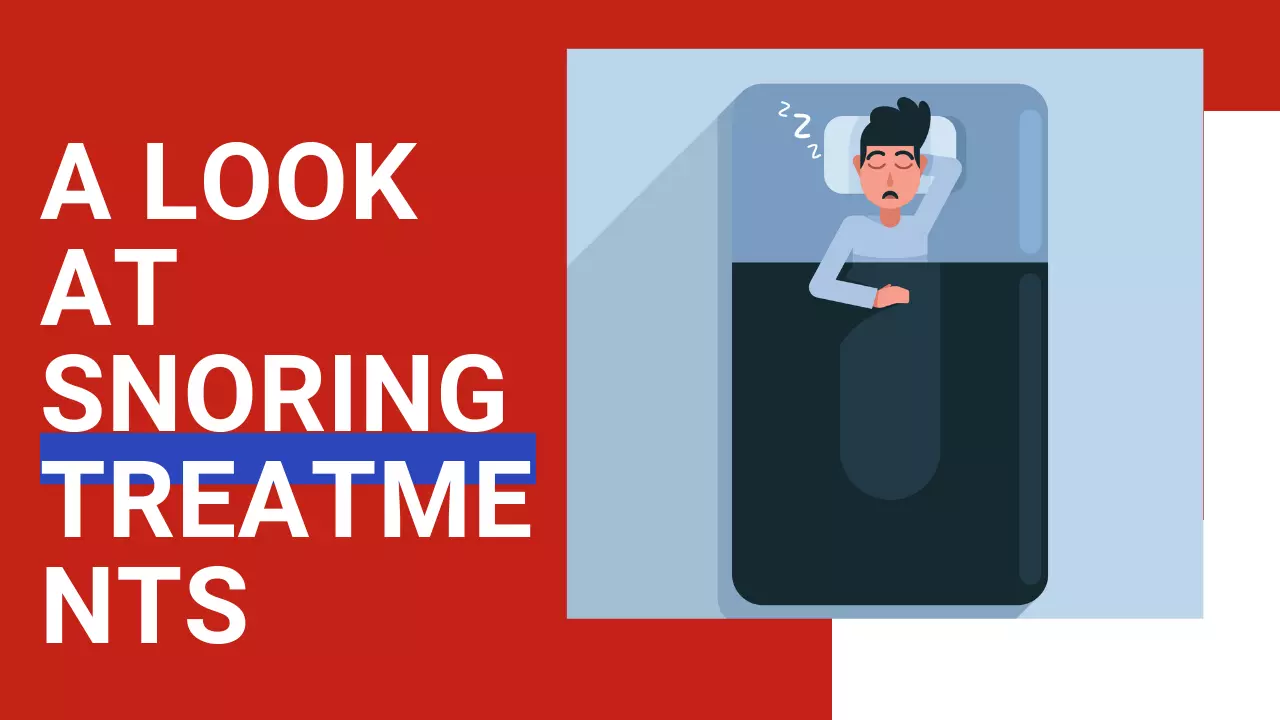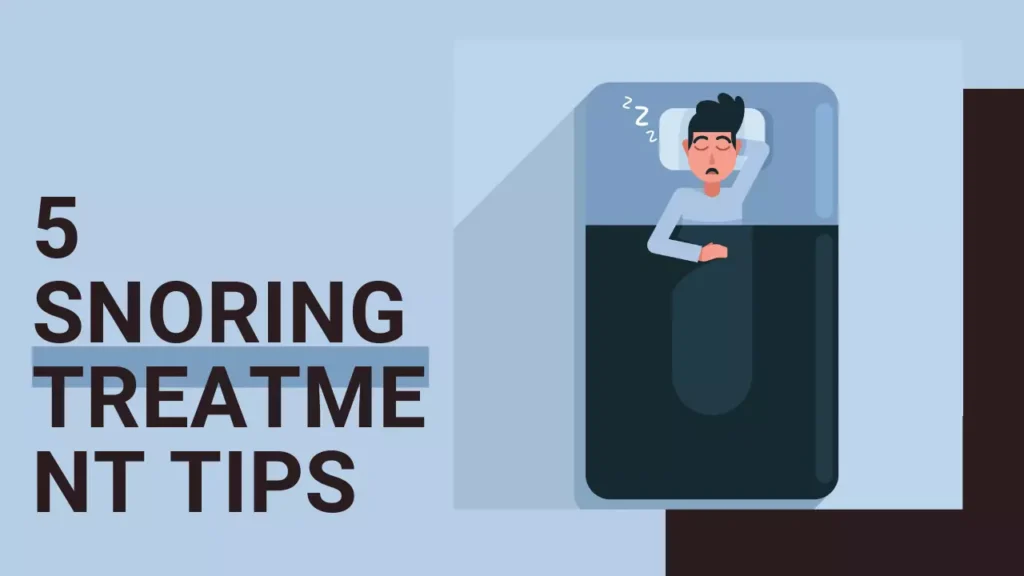
Snoring is a common issue that affects millions of people worldwide, disrupting not only their sleep but also the peace of those around them. While it’s often dismissed as a minor inconvenience, persistent snoring can lead to more serious health concerns. In this article, we’ll delve into various snoring treatments to help individuals and their partners find relief and enjoy restful nights.
Understanding the Causes of Snoring
Before exploring treatments, it’s crucial to understand the root causes of snoring. Snoring typically occurs when the flow of air through the mouth and nose is partially blocked during sleep. Common causes include:
- Obstructed Airways: When the throat muscles relax excessively, the airway narrows, causing vibrations during breathing.
- Nasal Congestion: Blockages in the nasal passages, often due to allergies or respiratory conditions, contribute to snoring.
- Sleep Position: Sleeping on one’s back can increase the likelihood of snoring, as the tongue and soft palate may collapse backward.
- Obesity: Excess weight can lead to the accumulation of fatty tissues in the throat, exacerbating snoring.
Lifestyle Changes for Snoring Relief
1. Weight Management
Maintaining a healthy weight is crucial for reducing snoring. Obesity increases the likelihood of fatty deposits in the throat, which can obstruct air passages. Adopting a balanced diet and incorporating regular exercise can contribute to weight loss and alleviate snoring.
2. Sleep Position
Changing sleep positions can make a significant difference. Sleeping on your side, rather than your back, prevents the collapse of the tongue and soft palate, minimizing snoring. Consider using special pillows or devices designed to encourage side sleeping.
Home Remedies and Self-Help Techniques
1. Humidifiers
Introducing moisture into the air with a humidifier can help reduce snoring caused by nasal congestion. Moist air keeps the nasal passages lubricated and less prone to blockages, promoting smoother airflow during sleep.
2. Throat Exercises
Engaging in regular throat exercises can strengthen the muscles in the throat and reduce the likelihood of snoring. Simple exercises, such as singing or repeating vowel sounds, can be effective in toning the muscles and minimizing snoring.
3. Avoiding Alcohol and Sedatives
Alcohol and sedatives relax the muscles in the throat, increasing the chances of snoring. Limiting the intake of these substances, especially before bedtime, can help prevent snoring episodes.
Medical Interventions for Snoring
1. Continuous Positive Airway Pressure (CPAP) Therapy
For individuals with more severe snoring issues, CPAP therapy is a common and effective treatment. This involves wearing a mask over the nose or mouth during sleep, delivering a continuous stream of air to keep the airway open.
2. Mandibular Advancement Devices (MADs)
MADs are oral appliances that reposition the lower jaw and tongue to keep the airway open. This can be an effective solution for snoring caused by obstructed airways or a relaxed tongue.
Over-the-counter and Anti-Snoring Devices
1. Nasal Strips
Nasal strips are adhesive strips placed on the outside of the nose to widen the nostrils, improving airflow and reducing snoring. They are a non-invasive and easily accessible option for those seeking immediate relief.
2. Anti-Snoring Pillows
Specially designed pillows can help maintain proper head and neck alignment, reducing the risk of snoring. These pillows often feature contours and supportive materials that encourage optimal sleeping positions.
Surgical Options for Persistent Snoring
1. Uvulopalatopharyngoplasty (UPPP)
In cases where lifestyle changes and conservative treatments prove ineffective, surgical options may be considered. UPPP involves removing excess tissue from the throat to widen the airway and reduce snoring.
2. Genioglossus Advancement (GA)
GA is a surgical procedure that repositions the tongue muscle attachment to prevent its collapse and reduce snoring. This targeted approach can be effective for specific cases of obstructive sleep apnea.
Integrative Approaches for Holistic Relief
1. Yoga and Breathing Exercises
Practicing yoga and specific breathing exercises can enhance overall respiratory health and reduce snoring. Techniques that focus on strengthening the respiratory muscles and promoting nasal breathing can be particularly beneficial.
2. Acupuncture
Some individuals find relief from snoring through acupuncture. This traditional Chinese medicine involves the insertion of thin needles into specific points on the body to stimulate energy flow and address imbalances that may contribute to snoring.
Comprehensive List of Online Snoring Solutions and Treatments
Explore a diverse range of online products and services designed to address snoring issues, categorized for easy navigation and personalized preferences. From anti-snoring devices to smart solutions and lifestyle programs, discover options to help you achieve a restful night’s sleep.
Anti-Snoring Devices:
- Zyppah: Mandibular advancement device with a tongue strap.
- Good Morning Snore Solution: Tongue stabilizing device.
Nasal Strips and Sprays:
- Breathe Right Nasal Strips: External nasal strips for improved airflow.
- RhinoMed Mute Nasal Dilator: Nasal dilator for enhanced nasal breathing.
Smart Devices and Apps:
- SnoreLab: App that records and analyzes snoring patterns.
- Smart Nora: Non-invasive snoring solution with a bedside device.
Pillows and Sleep Accessories:
- Therapeutica Sleeping Pillow: Ergonomically designed pillow for better sleep posture.
- SlumberBump: Positional therapy belt to prevent snoring.
Lifestyle Changes and Programs:
- My Snoring Solution: Chinstrap designed to keep the mouth closed during sleep.
- Pure Sleep: Customizable anti-snoring mouthpiece.
Professional Services:
- Online Snoring Consultations: Virtual consultations with sleep specialists.
- SnoreRx: Customizable anti-snoring mouthpiece with an online prescription option.
Remember to consult with healthcare professionals before using any snoring treatment products, especially if you have underlying health conditions.
Snoring is a prevalent issue with various underlying causes, making it essential to explore a range of treatments. From simple lifestyle adjustments to advanced medical interventions, there are numerous options available to address snoring and improve sleep quality. Individuals are encouraged to consult with healthcare professionals to determine the most suitable approach based on their specific needs and the severity of their snoring. By taking proactive steps, individuals can reclaim restful nights and improve both their well-being and that of their sleep partners.
FAQ
Q1: Can snoring be a sign of a more serious health condition?
Yes, persistent and loud snoring can be indicative of sleep apnea, a serious sleep disorder. If snoring is accompanied by pauses in breathing or excessive daytime fatigue, consult a healthcare professional for further evaluation.
Q2: Are over-the-counter nasal strips effective in reducing snoring?
Nasal strips can be effective for some individuals by improving airflow through the nostrils. However, their success varies, and they may not address the underlying causes of snoring in all cases.
Q3: How long does it take to see results from throat exercises?
Consistency is key. Performing throat exercises regularly over several weeks may strengthen the muscles and contribute to a reduction in snoring. However, individual results may vary.
Q4: Do anti-snoring pillows work for everyone?
Anti-snoring pillows are designed to promote proper head and neck alignment. While they can be beneficial for many individuals, their effectiveness may vary, and they might not be a one-size-fits-all solution.
Q5: Is surgery the only option for severe snoring?
No, surgery is typically considered when other treatments have failed. Less invasive options, such as CPAP therapy or oral appliances, are often explored first. Surgical interventions are reserved for persistent and severe cases.



